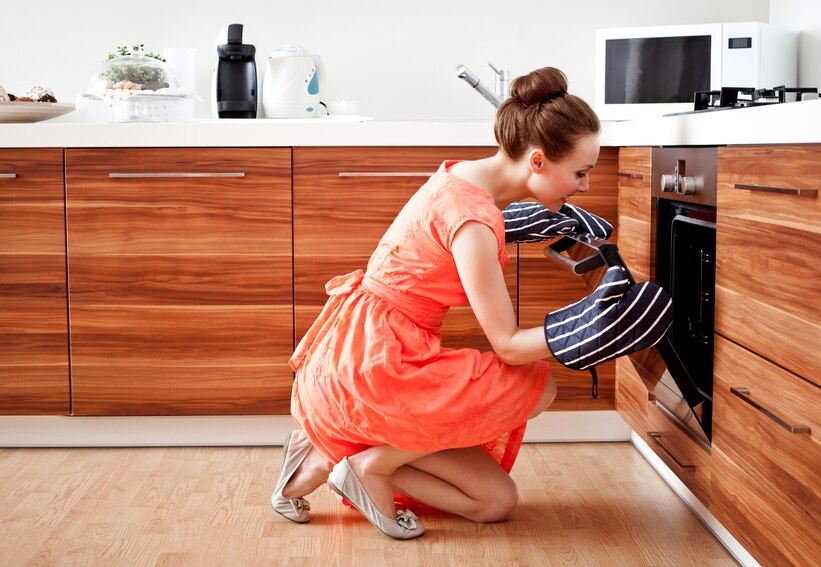Earth Day is celebrated in April, and on that day — and weeks beforehand — our attention is drawn to the importance of green living and adopting a more eco-friendly lifestyle. But what about the our actions and attitudes throughout the rest of the year? Here are some ways to spread the love for our mutual Big Mama into daily life.
Don’t preheat your oven
Did you know that unless you are cooking temperamental things—such as bread or other baked goods—there is no need to warm up your oven? The next time you make dinner (such as a roast or casserole), try these going green tips and don’t turn on your oven until you put in the food. And according to Reader’s Digest, you never have to preheat for things that will cook for more than an hour—the oven will reach the desired temperature as the food cooks. And by cooking with glass or ceramic pans instead of metal, you can lower the called-for oven temperature by 25 degrees.
Another questionable cooking practice is leaving the oven on “the proper setting” until the end of the specified cook time. A hot oven with the door kept closed loses heat quite slowly. Try experimenting with “coasting” to the finish at least 15 minutes ahead of the time you expect to remove the baked food.
All these years of dutifully preheating my oven–and leaving it on till the fragrant end—for naught. What I like about this tip is that it’s so easy to implement right away.
Bring your own
This one, though it sounds easy, seems dauntingly difficult to implement. Also, many places are not eager to accommodate working with a your own vessel/containers. But here are the horrifying stats to consider this Earth Day, courtesy of Klean Kanteen.
- We use 58 billion paper cups each year (128 cups per person).
- We throw away 35 billion plastic water bottles each year.
- We produce enough Styrofoam cups every year to circle the earth 436 times.
- In 24 seconds, we will use 44,110 disposable coffee cups.
- If Americans stopped using to-go cups, we would save 160 million cups every day.
- The average US family throws away a carload of plastic every month (including about 60 water bottles).
- Plastic accounts for around 10% of the total waste we generate.
Klean Kanteen created the #BringYourOwn project to inspire a new conversation around eliminating single use and waste in the environment. The aim is to raise awareness around the policies and cultural ideas that promote a disposable lifestyle.
Reality is, I still struggle with remembering my canvas bags at the supermarket. But for starters, I think I can remember to keep reusable bottles the ready. I am also drawn to the glass straw concept—I think I can also take the step of having a set of these in my car for my family.
Just say no—to paper
The EPA estimates paper and paperboard comprise nearly 40 percent of our garbage. The average office worker uses 10,000 sheets of paper every year, which amounts to almost two cases. Most of us are guilty of over-printing. Stop printing out emails or reports unless they’re absolutely necessary to file away—if you must, print double-sided to save paper. While recycling paper is important, precycling– the practice of avoiding the acquisition of unnecessary items that will eventually have to be recycled or dealt with as waste—is an even savvier move.
Green to the end
When a friend or family member dies, the environment is understandably not always the biggest thing on our mind. However, funerals are often surprisingly wasteful. It’s worth exploring other funeral options, and presenting them as alternatives, so when the end does come it doesn’t need to be an additional burden on the environment.
The Green Burial Council lays down the basic principles of a green funeral and outlines the problems with traditional funerals on their website. It’s worth quoting the Council, since this is such a touchy subject: “The Council does not think any end-of-life ritual, form of disposition, or mode of post-mortem preparation is “wrong.” We are simply advocates for green services and products that help to minimize the environmental impact of our last acts.” It may seem far off, but leaving with minimal trace may be one of the most earth-friendly steps we can take.

